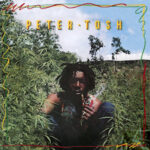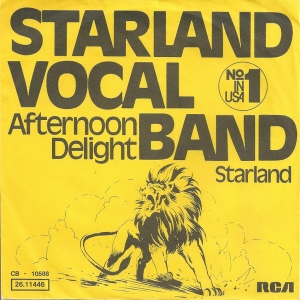 In 1976, Peter Tosh released “Legalize It”, a song that would become one of the most iconic anthems of reggae and a powerful rallying cry for the decriminalization of marijuana. Emerging from the roots reggae movement and Tosh’s own storied history with The Wailers, the track blends infectious rhythms with unapologetic political commentary, creating music that is both enjoyable and thought-provoking. At its core, “Legalize It” is more than a simple plea for cannabis legalization—it is a statement about personal freedom, social justice, and the fight against oppressive systems. Tosh’s rich, commanding vocals, combined with the hypnotic pulse of reggae instrumentation, convey both conviction and charisma, making the song a timeless classic. Beyond its musical appeal, the track embodies the spirit of resistance that defined 1970s Jamaica, a period marked by political turbulence, economic inequality, and cultural transformation. Through “Legalize It”, Tosh offered a voice to marginalized communities, advocating for a cause that intersected with broader struggles for human rights, equality, and cultural recognition. Its legacy endures not only as a reggae milestone but also as a cultural statement that has inspired generations of activists, musicians, and listeners around the world to consider the intersection of art, politics, and personal freedom.
In 1976, Peter Tosh released “Legalize It”, a song that would become one of the most iconic anthems of reggae and a powerful rallying cry for the decriminalization of marijuana. Emerging from the roots reggae movement and Tosh’s own storied history with The Wailers, the track blends infectious rhythms with unapologetic political commentary, creating music that is both enjoyable and thought-provoking. At its core, “Legalize It” is more than a simple plea for cannabis legalization—it is a statement about personal freedom, social justice, and the fight against oppressive systems. Tosh’s rich, commanding vocals, combined with the hypnotic pulse of reggae instrumentation, convey both conviction and charisma, making the song a timeless classic. Beyond its musical appeal, the track embodies the spirit of resistance that defined 1970s Jamaica, a period marked by political turbulence, economic inequality, and cultural transformation. Through “Legalize It”, Tosh offered a voice to marginalized communities, advocating for a cause that intersected with broader struggles for human rights, equality, and cultural recognition. Its legacy endures not only as a reggae milestone but also as a cultural statement that has inspired generations of activists, musicians, and listeners around the world to consider the intersection of art, politics, and personal freedom.
Peter Tosh and the Roots of Resistance
Peter Tosh’s career was deeply entwined with the development of reggae music and its power as a vehicle for social commentary. A founding member of The Wailers alongside Bob Marley and Bunny Wailer, Tosh had long been committed to using music as a platform for addressing political and social issues. By the mid-1970s, his solo career allowed him to fully express his militant approach to advocacy, blending music with unflinching activism.
“Legalize It” exemplifies Tosh’s philosophy: music should entertain, educate, and inspire change. Unlike more commercial reggae tracks of the era, the song is unapologetically political, advocating for cannabis legalization as a matter of personal liberty, economic justice, and cultural recognition. Tosh’s approach resonates with the ethos of roots reggae, which often emphasized resistance, spirituality, and social awareness.
Origins and Inspiration
The inspiration behind “Legalize It” came from Tosh’s firsthand experiences with systemic oppression and his deep belief in the spiritual and medicinal properties of marijuana. Cannabis, or “ganja,” had long been an integral part of Rastafarian culture, both as a sacrament and as a symbol of resistance against colonial and governmental control. Tosh’s lyrics reflect this dual significance, advocating for personal freedom while asserting cultural identity.
Lines like:
“Legalize it, don’t criticize it
Legalize it, and I will advertise it”
communicate a direct, unapologetic demand for reform. Beyond its surface-level plea, the song critiques the criminalization of marginalized communities, highlighting the inequities and hypocrisies inherent in anti-cannabis legislation. Tosh’s advocacy is both personal and political, framing legalization as a matter of justice, autonomy, and cultural respect.
Musical Composition and Arrangement
Musically, “Legalize It” is a masterclass in roots reggae simplicity and groove. The track features a steady, rolling bassline that anchors the rhythm, complemented by the skanking guitar patterns characteristic of reggae. Percussion and subtle keyboard flourishes add texture, creating a hypnotic, meditative atmosphere that reinforces the song’s themes of reflection, resistance, and advocacy.
Tosh’s vocal delivery is central to the track’s impact. His deep, resonant voice conveys both authority and warmth, giving the lyrics weight and credibility. The melody is simple but memorable, allowing the message to remain front and center. The restrained instrumental approach ensures that nothing distracts from the song’s core purpose: advocating for legalization while celebrating the cultural significance of ganja.
Lyrics and Advocacy
The lyrics of “Legalize It” are a direct call to action, delivered with clarity and conviction. Tosh balances advocacy with a sense of cultural pride, asserting the legitimacy of cannabis use within Rastafarian spirituality and the broader context of Jamaican society.
The refrain—repeating the phrase “Legalize it”—serves as both a mantra and a rallying cry, emphasizing the urgency and importance of the cause. Lines such as:
“It’s good for the enemy, good for your friend
The nation’s economy will depend”
highlight the practical, social, and economic arguments for legalization, framing it not merely as a personal freedom issue but as a societal benefit. Tosh’s lyrical approach combines moral persuasion with pragmatic reasoning, making the song persuasive, memorable, and impactful.
Production and Sound Aesthetic
Produced with a focus on clarity and groove, “Legalize It” embodies the warm, earthy sound of 1970s roots reggae. The bass is prominent, providing a solid foundation for the skanking guitars and steady percussion. The mix emphasizes Tosh’s vocals, ensuring that every word is clearly heard, while subtle effects on guitar and keys add depth without overwhelming the track’s hypnotic simplicity.
The production’s minimalism enhances the song’s directness. Each instrument serves a purpose, supporting the message rather than competing with it. This clarity of arrangement ensures that listeners are immediately drawn to the rhythm and the lyrics, reinforcing the song’s dual role as a musical and political statement.
Reception and Controversy
Upon its release, “Legalize It” was both celebrated and controversial. While many praised Tosh for his fearless advocacy and infectious rhythms, the song also drew criticism from authorities and segments of society opposed to cannabis legalization. Radio airplay was limited in certain regions, yet the track achieved international recognition, particularly among reggae enthusiasts, social activists, and youth movements seeking change.
Over time, “Legalize It” has come to be recognized not only as a cornerstone of Peter Tosh’s solo career but also as a landmark in the cultural and political history of reggae. Its message resonated far beyond Jamaica, inspiring activists and musicians worldwide to consider the intersections of music, law, and personal freedom.
Live Performances and Legacy
Peter Tosh’s live performances of “Legalize It” were electrifying and persuasive. On stage, Tosh’s charisma, stage presence, and unwavering commitment to his message turned the song into an interactive experience, engaging audiences with both rhythm and rhetoric. Live renditions often emphasized the hypnotic groove of the track, allowing listeners to feel both the musical and ideological pulse of the song.
The song’s legacy endures through its influence on reggae, hip-hop, and activist music worldwide. Artists have covered and sampled “Legalize It”, drawn to its compelling combination of musicality and advocacy. Its cultural impact is evident in the ongoing discussions about cannabis legalization, demonstrating that music can serve as both entertainment and a catalyst for social change.
Why “Legalize It” Matters Today
“Legalize It” remains relevant decades after its release due to its timeless message of personal freedom, cultural affirmation, and social justice. In an era when cannabis legalization has become a prominent political issue in many countries, Tosh’s advocacy resonates with renewed urgency, highlighting the enduring power of music as a tool for activism.
Beyond its political message, the song exemplifies the power of simplicity, rhythm, and vocal authority in creating music that is both compelling and memorable. Its influence is seen not only in reggae but also in genres ranging from hip-hop to pop, where artists continue to blend social commentary with infectious grooves.
Cultural Significance
“Legalize It” also represents a moment in Jamaican history when music served as a vehicle for resistance, identity, and cultural affirmation. By advocating for cannabis legalization, Tosh was simultaneously asserting Rastafarian spiritual values, challenging colonial legacies, and promoting social reform. The song embodies the ethos of roots reggae: music that entertains, educates, and empowers.
Its cultural significance extends to global audiences as well. In regions where cannabis legalization debates continue, “Legalize It” functions as both a historical document and a call to action, demonstrating the capacity of music to influence discourse and inspire change.
Final Reflections
Peter Tosh’s “Legalize It” is more than a 1976 reggae single; it is a revolutionary anthem that combines musical brilliance with unwavering political advocacy. Its hypnotic grooves, clear production, and persuasive lyrics create a song that is both enjoyable and thought-provoking.
Tosh’s vocal delivery, rooted in conviction and charisma, carries the message with authority, while the minimalist instrumentation ensures the focus remains on the song’s themes of freedom, justice, and cultural recognition. The track’s enduring relevance in music and activism underscores its status as a landmark in reggae history and a timeless example of music as a force for social change.
“Legalize It” continues to resonate with audiences worldwide, reminding listeners of the power of music to challenge norms, advocate for justice, and celebrate cultural identity. It is a song that entertains, enlightens, and inspires—a true testament to Peter Tosh’s vision, courage, and artistry.


